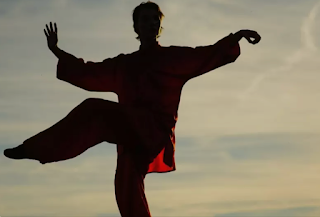See it, want it. How often do you have the experience of seeing something and feeling you just have to have it? That feeling is what we call desire, and Ruth and I are having a big encounter with its consequences right now as we sell our farm and downsize considerably.
So this week we delve into desire; its nature, its consequences and what to do when it needs an antidote, but first
Thought for the day
If you ask me what sort of self-control you need
To do the work of contemplation,
My answer is, ‘None at all!’
In everything else you do, you should practise moderation.
Avoid extremes when eating, drinking or sleeping.
Also, protect your body from severe cold or heat,
Do not pray or read too long
And do not spend too much time conversing with your friends.
In all of these things, it is important
That you do neither too much nor too little.
But in contemplation, you may throw caution to the wind.
Indulge.
I hope you will never stop doing this loving work as long as you live.
The Cloud of Unknowing
We humans are primarily motivated by desire. We want things. We wish for things. So much of our energy and thinking is dedicated to how we can acquire stuff, and then both hold onto it and protect it. Ask the Buddhists, and they characterise human life as being in the “desire realm”.
So just because we like something does that mean we have to have it?
To obtain it?
To work for it?
To purchase it?
To steal it or gain it by deception?
Ruth and I are in the final stages of selling our delightful farm where we have lived these past 23 years. We are downsizing dramatically; moving into our small flat in the city where we will enjoy a simpler life for a while and await what beckons us into the future. We are bound to move again soon…
So in this process of transition, lots of “stuff” to deal with. The fascinating process of going through all our possessions, every one of them, evaluating them on need and desire, and deciding what to keep, what to give away, what to put in the bin, and what to attempt to sell.
As an aside, have learnt something interesting:
When you go to sell something, it is always worth less than you thought.
When you go to buy something, it is always worth more than you thought.
Funny that…
Anyway, back to the “stuff”, and desire. That urge to own things – and experiences – is such a strong one, and it comes with so many challenging attachments. You could say “attachment” is the issue.
I notice it most strongly having lived on a farm for a good part of my life.
People say “we own this piece of land”.
We “own”?
What does that mean?
At the least we are short term guests, maybe at best we are caring custodians.
The land was here long before we arrived; it will be here long after we leave.
“Own”?
So maybe with land we can get this principle of non-ownership more easily if we live in a peaceful part of the world. Where buying and selling is a civilised process. But it is easy to notice how complicated the notion of ownership becomes in contested areas. “This land is mine. It was my parents, my ancestors, my nation’s land”. When two or more families, tribes, nations hold a similar view, then it is easy to understand how conflict ensues.
And we do not need to reflect for more than a moment or two to appreciate how complex and challenging it can be to resolve such issues.Most of us will have been deeply affected by recent conflicts – most notably in the Ukraine and Gaza.
Many may identify with one side or the other, and feel strong emotions.
So this is the point.
Here we are not going into any sense of who is right and who is wrong, or indeed if anyone is right or wrong; what we are reflecting on here is the root issue – desire and the feeling of ownership – my land, my car, my job, my wife, my computer that I read this on.
How do we balance the recognition that we do need to “own” things, to have the right to maintain our ownership, to not be robbed or tricked out of them, but at the same time avoid becoming overly greedy, or overly possessive, right up to the point of going to war over ownership?
I am just going to leave this one here for now… with an invitation to reflect on these deeply personal matters…
How we manage our desires, and the consequences of those desires, defines how we are as human beings.
How do we manage acquiring enough stuff to meet our needs and to keep ourselves comfortable in an equitable and fair way?
How do we balance our desires with the desires of others?Maybe even more, how do we become less driven by desire itself???
And remember, the quieter you become, the more you can hear…








